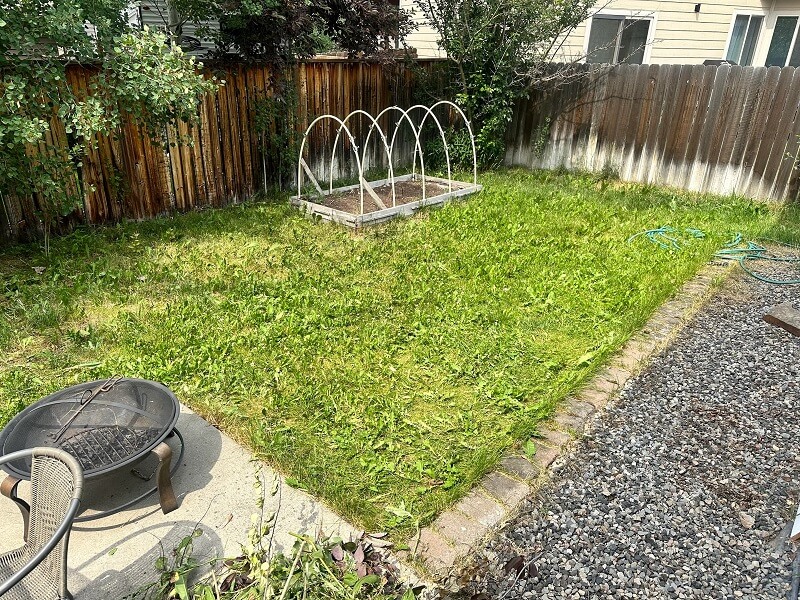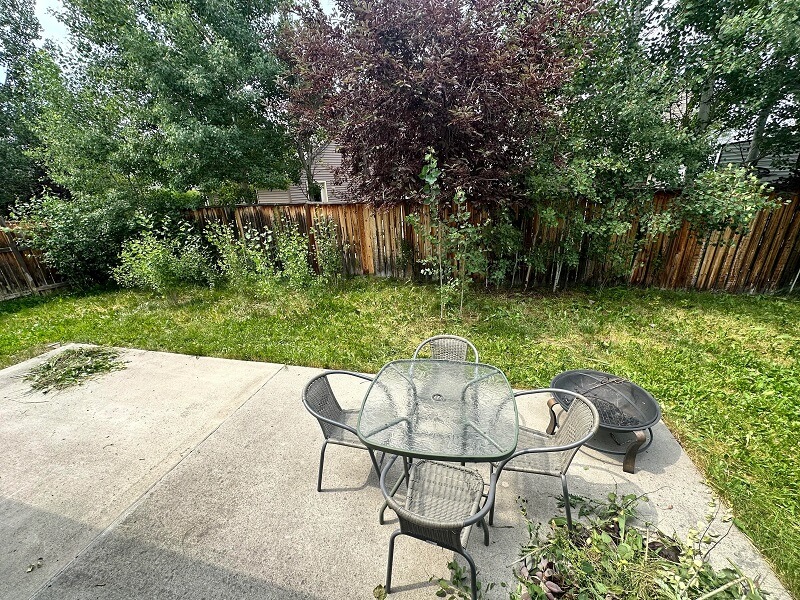A homeowner is ready to get wild with their lawn.
In the r/Landscaping subreddit, a Montana resident shared photos of the yard, declaring they are ready to give some native landscaping a go.


"My HOA requires this awful Kentucky bluegrass if we have a lawn, but some of my neighbors have amazing natural landscaping with native grasses, flowers, ground cover, and shrubs," they wrote.
They called the maintenance of the lawn "the bane of my existence for six years" and said they were looking for tips on what plants to opt for, taking into consideration that the lawn gets full sun most of the day in a very dry area of the state.
Lots of people have been opting to do more native landscaping in recent years, despite protests from homeowners associations. Some people in dry areas have switched to a xeriscaping approach, which is landscaping that lowers or eliminates the need for added water, saves money on water bills, and helps conserve water to avoid drought conditions.
It also reduces or eliminates the need for toxic pesticides, keeping them out of the water supply and environment, not to mention less gas needed for lawnmowers.
The homeowner looking to replace their grass lawn has plenty of options at their disposal too. Planting buffalo grass, which is native to North America, or clover, which draws in pollinators, are both great options to start brainstorming. To really narrow down which plants will thrive in your area, check out the Plant Hardiness Zone Map. The Cool Down's guides to rewilding your yard and switching to a natural lawn are also good reference guides.
Commenters in the r/Landscaping subreddit were happy to offer advice to the frustrated homeowner.
"I'll be honest: I could give you a whole bunch of suggestions, but… if you can afford it, hire a pro landscape architect to design something 'cohesive' that adds value to your home and gives you some new features to enjoy," one person said, adding that things like a deck, BBQ area, a Japanese-style rock garden, and even a small dipping pool for hot days would be excellent ideas.
Another person agreed with going the professional route, saying: "Garden projects like the one you seem to be contemplating (front and back yard) can easily become overwhelming and very costly. Investing some cash up front to have a professional help you come up with a plan might be money very well spent."
"Find a good native nursery to start the conversation. Really learn your plants and have a plan before you commit to the labor," another suggested.
Join our free newsletter for easy tips to save more and waste less, and don't miss this cool list of easy ways to help yourself while helping the planet.









